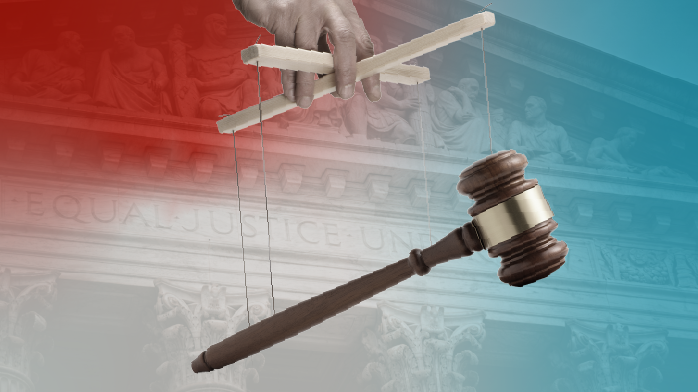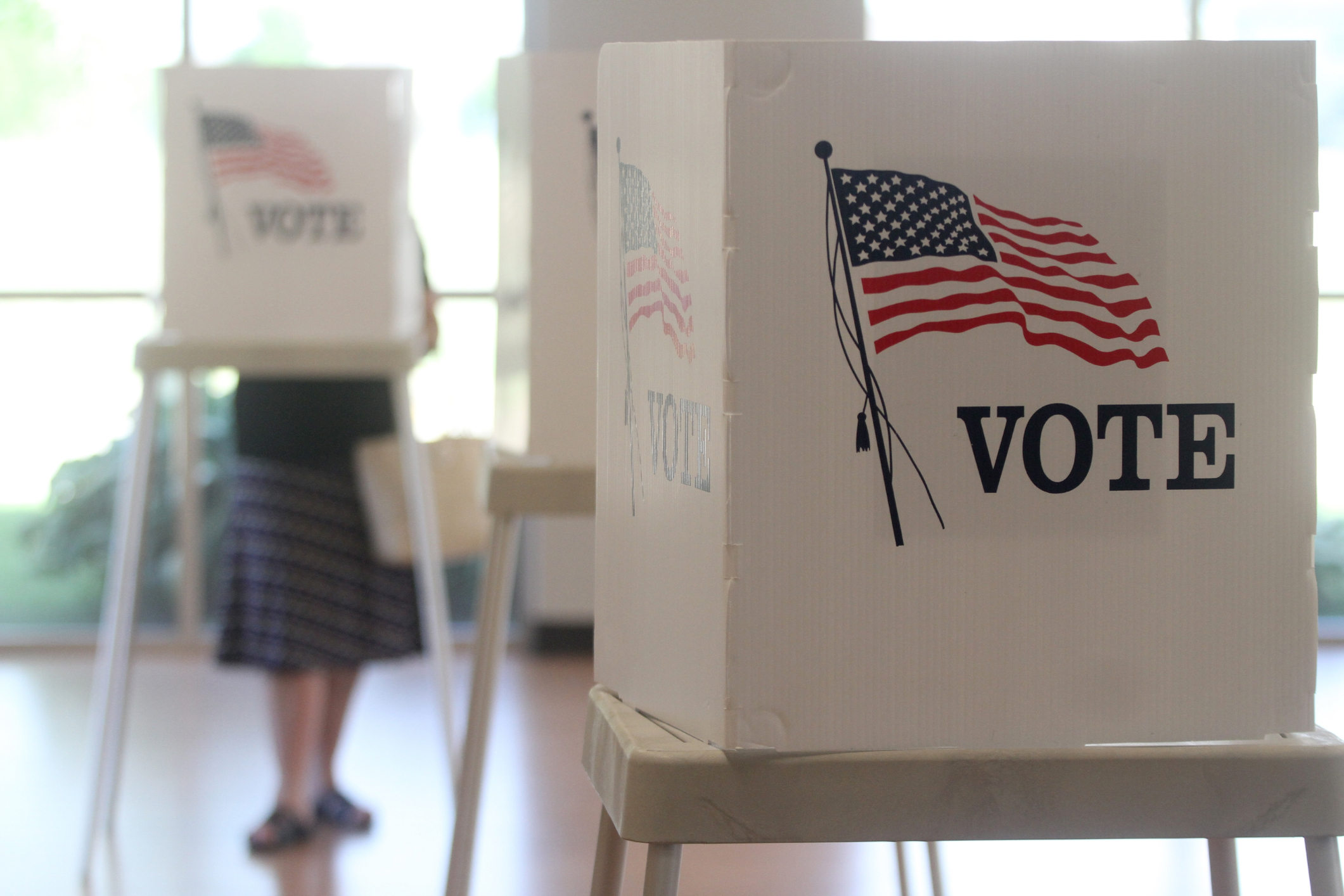
Thought Pieces / Jan 27, 2023
OPINION: The Invisible Contest Beneath Our Elections

It’s 2023, and what felt like a colossal midterm election now feels far, far behind us. As we move into this new year, it’s been interesting to observe how quickly our public discourse has hopped from one election cycle to the next. Right now—as many of the basic tenets of our democratic political apparatus are very much at risk—somehow, headlines like “Will Biden Really Run in 2024?” and “DeSantis Shuts Down 2024 Rivals” are consistently at the top of my news feed.
But is the contest between candidates really as big and newsworthy as the contest that
undergirds it? The contest I’m talking about isn’t about an election – it’s about the rules of the game, not the players. And it isn’t getting nearly enough attention.
Historically and still today, our popular discourse focuses more on the people in power than the structures of power themselves. It’s understandable. Look at the types of headlines that dominate our news cycle. “George Santos Spars with Drag Queen.” “Is Marjorie Taylor Greene Pivoting Away From Jewish Space Lasers?” We read these articles because they’re relevant (and because… space lasers), but new research from the Culture Change Project points to the idea that we pay so much attention to individual political actors because of how our brains think about government.
According to our latest findings, Americans tend to view government not as a complex system of rules, policies, actors, and institutions, but as a collection of individual leaders. We refer to this as “person-centric thinking.” What’s to blame for racist policies? Bad, racist politicians. The solution? Vote them out. What’s to blame for decisions being made that go against the views of the majority of Americans (e.g., overturning Roe v. Wade)? Ideological judges. The solution? Elect people who will appoint better ones.
Why is it, then, that even when we elect the “right” people, the change we hope for isn’t delivered? It’s not that person-centric thinking is inherently bad or wrong. We do need to elect good leaders and pay attention to elections. But the discussion tends to end there, obscuring the need to focus on the flaws in our political system itself.
But what would happen if we changed the conversation? What if the surround sound playing constantly were focused less on things like a tight Senate race in Nevada and more on why a state with a smaller population than Los Angeles gets equal representation in the Senate as the entire state of California? What if the sound piped into our ears focused less on the moral character of Clarence Thomas and more on how it came to be that nearly half of the justices on the bench were appointed by presidents who never won the popular vote?
To lay the groundwork for deep, democratic reform, we need a national conversation that counterbalances this default, person-centric view of government with a call for changes to the rules of the game, not just new people playing it. Of course we need changes to both, but we have been doing far more talking about people than we have about the political system they operate within. And because what we talk about shapes how we think, our minds are focused on elected leaders rather than Constitutional reform.
There is a close relationship between mindsets and discourse, and for as long as we’ve studied these concepts, we’ve seen how public conversation can shape political reality. Just look at the dialogue around the #MeToo movement and the public pressure that has resulted in more states rejecting harmful non-disclosure agreements, passing worker protections, and more companies removing dangerous men from power.
Similarly, creating a fair and representative democracy will require us to generate a public demand for Constitutional reform that goes beyond people in seats. We need a more robust public discourse around things like reforming or eliminating the electoral college which, among other problems, gives outsized power to some groups over others. We need a stronger discourse around the way the Supreme Court is constituted and the tremendous power it holds in shaping how we all live our lives.
Our information environment has many dimensions, and right now, the topography of that environment is strongly tilted toward electoral politics. Think about how often we see messages in our daily lives about elections and candidates and how infrequently we are exposed to ideas about fundamental democratic reform.
If we want to create public demand for foundational change, we need the media, pundits, influencers, the general public, and political leaders themselves to be talking about the need for these changes. And if we want political leaders to use their megaphone to amplify these issues, they need to feel the pressure. This means calling out our representatives and holding their feet to the fire about these issues, but it also means talking, writing about, and elevating the need for Constitutional reform in our own circles.
The focus on the people in politics assumes that our political system is generally just and well-designed. Spoiler alert: it’s not. Our person-centric view of government rests on the idea that rules of our democracy are fair and fine and that the problem lies in how they are being implemented. We need an information environment that is better balanced between the need for new leaders who will reduce harm and improve outcomes for people right now, and the fundamental democratic redesign that is necessary for real, enduring change.
So as we look ahead to 2024, let’s not miss an opportunity to look at what’s beneath our elections and create some buzz for better politicians and a better system for them to govern.
Issues: Government and Democracy
Countries: United States